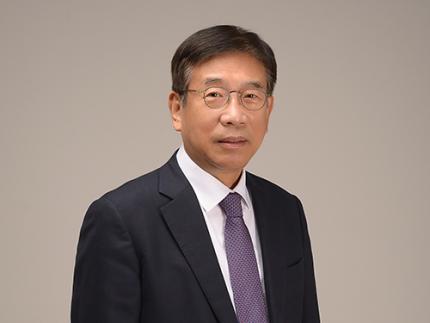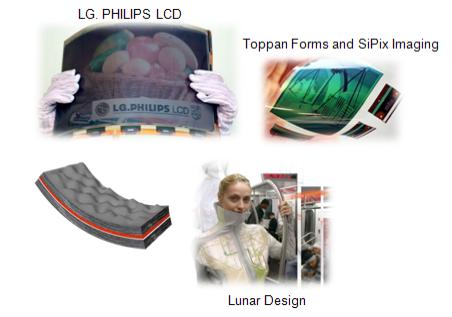Jae-Kyu+Lee
-
 Emeritus Professor Jae-Kyu Lee Wins the AIS LEO Award
Emeritus Professor Jae-Kyu Lee has won the Association for Information Systems LEO Award 2020. Professor Lee, the first Korean to receive the LEO Award, was recognized for his research and development in preventative cyber security, which is a major part of the efforts he leads to realize what Professor Lee has named "Bright Internet."
Established in 1999, this award was named after the world’s first business application of computing, the Lyons Electronic Office and recognizes outstanding individuals in the field of information systems. The LEO Award recognized four winners including Professor Lee this year.
He has been professor and HHI Chair Professor at KAIST from 1985 to 2016 since he has received his Ph.D. in information and operations management from the Wharton School, University of Pennsylvania. He served as the Dean of College of Business and supervised around 30 doctoral students. He is currently the Distinguished Professor of School of Management at Xi’an Jiaotong University.
His research mainly focused on the creation of Bright Internet for preventive cybersecurity, improving relevance of research from Axiomatic Theories, and development of AI for electronic commerce and managerial decision support.
He is a fellow and was the president of the Association for Information Systems, and co-chaired the International Conference on Information Systems in 2017. He was the founder of Principles for the Bright Internet and established the Bright Internet Research Center at KAIST and Xi’an Jiatong University. He also established the Bright Internet Global Summit since ICIS 2017 in Seoul, and organized the Bright Internet Project Consortium in 2019 as a combined effort of academia-industry partnership. (www.brightinternet.org.)
He was a charter member of the Pacific Asia Conference in Information Systems, and served as conference chair. He was the founder editor-in-chief of the journal, Electronic Commerce Research and Applications (Elsevier), and was the founding chair of the International Conference on Electronic Commerce. In Korea, her served as president of Korea Society of Management Information Systems and Korea Society of Intelligent Information Systems.
"I am honored to be designated the first Korean winner of the honorable LEO Award," Lee said. "Based on my life-long efforts for developments in the field, I will continue to contribute to the research and development of information media systems."
2020.12.16 View 7913
Emeritus Professor Jae-Kyu Lee Wins the AIS LEO Award
Emeritus Professor Jae-Kyu Lee has won the Association for Information Systems LEO Award 2020. Professor Lee, the first Korean to receive the LEO Award, was recognized for his research and development in preventative cyber security, which is a major part of the efforts he leads to realize what Professor Lee has named "Bright Internet."
Established in 1999, this award was named after the world’s first business application of computing, the Lyons Electronic Office and recognizes outstanding individuals in the field of information systems. The LEO Award recognized four winners including Professor Lee this year.
He has been professor and HHI Chair Professor at KAIST from 1985 to 2016 since he has received his Ph.D. in information and operations management from the Wharton School, University of Pennsylvania. He served as the Dean of College of Business and supervised around 30 doctoral students. He is currently the Distinguished Professor of School of Management at Xi’an Jiaotong University.
His research mainly focused on the creation of Bright Internet for preventive cybersecurity, improving relevance of research from Axiomatic Theories, and development of AI for electronic commerce and managerial decision support.
He is a fellow and was the president of the Association for Information Systems, and co-chaired the International Conference on Information Systems in 2017. He was the founder of Principles for the Bright Internet and established the Bright Internet Research Center at KAIST and Xi’an Jiatong University. He also established the Bright Internet Global Summit since ICIS 2017 in Seoul, and organized the Bright Internet Project Consortium in 2019 as a combined effort of academia-industry partnership. (www.brightinternet.org.)
He was a charter member of the Pacific Asia Conference in Information Systems, and served as conference chair. He was the founder editor-in-chief of the journal, Electronic Commerce Research and Applications (Elsevier), and was the founding chair of the International Conference on Electronic Commerce. In Korea, her served as president of Korea Society of Management Information Systems and Korea Society of Intelligent Information Systems.
"I am honored to be designated the first Korean winner of the honorable LEO Award," Lee said. "Based on my life-long efforts for developments in the field, I will continue to contribute to the research and development of information media systems."
2020.12.16 View 7913 -
 KAIST listed 27 research subjects for EEWS.
The Office of EEWS Initiative at KAIST announced 27 research projects to be implemented in 2010. The EEWS stands for energy, environment, water, and suitability.
KAIST established the EEWS Office in 2008 in efforts to solve problems facing mankind today such as depletion of natural resources, environment pollution, climate changes, water shortages, and sustainable growth. On the nationwide, the Korean government has taken initiatives to support “green growth” and “green technology” projects.
In 2009, the EEWS Office supported 24 research projects and received 28 patent rights, 6 patent registrations, and 57 Science Citation Index (SCI) papers. This year, the office chose 27 research subjects including 7 flagship projects: flexible lithium polymer batteries, spent nuclear fuel recycling, highly efficient bio-butanol, liquid electrolyte battery solid oxide fuel cell, LED lighting, artificial photosynthesis, and nano organic solar cells. New research topics begun this year include energy-saving desalination system and ultra-thin film of silicon solar cells.
Jae-Kyu Lee, Dean of EEWS Initiative Office said, “Having multiple volume of small-scaled, topic-focused research projects will encourage us to come up with large-scale convergence research projects. In so doing, we can explore new frontiers of science and technology and serve as the new growth engine for the development of green technology and industry in Korea.”
All the research projects selected will be subject to evaluations. For example, the EEWS Initiative Office will host an international workshop in September 2010 where it plans to introduce and evaluate the ongoing research projects.
2010.05.19 View 11256
KAIST listed 27 research subjects for EEWS.
The Office of EEWS Initiative at KAIST announced 27 research projects to be implemented in 2010. The EEWS stands for energy, environment, water, and suitability.
KAIST established the EEWS Office in 2008 in efforts to solve problems facing mankind today such as depletion of natural resources, environment pollution, climate changes, water shortages, and sustainable growth. On the nationwide, the Korean government has taken initiatives to support “green growth” and “green technology” projects.
In 2009, the EEWS Office supported 24 research projects and received 28 patent rights, 6 patent registrations, and 57 Science Citation Index (SCI) papers. This year, the office chose 27 research subjects including 7 flagship projects: flexible lithium polymer batteries, spent nuclear fuel recycling, highly efficient bio-butanol, liquid electrolyte battery solid oxide fuel cell, LED lighting, artificial photosynthesis, and nano organic solar cells. New research topics begun this year include energy-saving desalination system and ultra-thin film of silicon solar cells.
Jae-Kyu Lee, Dean of EEWS Initiative Office said, “Having multiple volume of small-scaled, topic-focused research projects will encourage us to come up with large-scale convergence research projects. In so doing, we can explore new frontiers of science and technology and serve as the new growth engine for the development of green technology and industry in Korea.”
All the research projects selected will be subject to evaluations. For example, the EEWS Initiative Office will host an international workshop in September 2010 where it plans to introduce and evaluate the ongoing research projects.
2010.05.19 View 11256